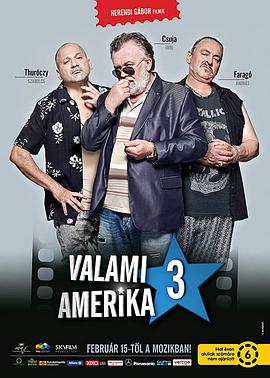搜索词:Gábor Nyiri
命运无常
Marcell Nagy,Béla Dóra,Bálint Péntek,Áron Dimény,Péter Fancsikai,Zsolt Dér,András M. Kecskés,Dani Szabó,Tibor Mertz,Péter Vida,Endre Harkányi,Márton Brezina,Zoltán Bukovszki,Gábor Nyiri,Jenö Nagy
二战期间,战争与死亡的阴云笼罩整个欧洲,无一国家幸免。 居住在匈牙利的14岁犹太青年卡维(Marcell Nagy 饰),在乘车探望父亲的路上被纳粹军人拦下,随后被送往集中营。在这个非人的所在,死亡、疾病、虐待、恐惧时刻威胁着他们的生命。听取了好友凯尔泰斯的建议,卡维发誓无论如何也要活着走出这个人间地狱…… 本片根据2002年度诺贝尔获奖作家伊姆雷•凯尔泰兹(Imre Kertész)的同名小说改编,并荣获2005年波兰Camerimage电影节金蛙奖和2005年哥本哈根国际电影节最佳摄影奖。
冥界警局2:咒灵崛起
杰弗里·多诺万,佩内洛普·米契尔,理查德·布雷克,凯丽·科纳佩,杰克·崔,理查德·弗利施曼,克雷格·埃尔斯,Tilly Keeper,诺拉·特罗坎,Stephanie Levi-John,尼克·威特曼,Liz Borden,Gábor Perei,Rachel Adedeji,Robert Jackson
《R.I.P.D 2:大坝的崛起》(Rise of the Damed)以1876年的美国西部为背景,是2013年《R.I.P.D》的精神(请原谅双关语)续集。警长罗伊·普尔西弗发现自己在与臭名昭著的非法团伙枪战后死亡,并没有太兴奋,但他在被r.i.p.d(安息部门)招募后得到了第二次返回地球的机会。但是,当通往地狱的大门在古老的采矿小镇红溪打开,不仅威胁到当地人,拯救世界的时候,为自己报仇可能要退居其次了。而是整个人类本身。
潇洒上枝头
波莱克·波利夫卡,Borek Dlouhý,Ivan Drozdy,Judita Durdiaková,Zita Furková,Adela Gáborová,Stanislav Hodos,迪娜·霍瓦索瓦,Markéta Hrubesová,Erik Jamrich,Ján Króner Jr.,Nora Kuzelová,斯特凡·克维季克,米罗斯拉夫·马哈切克,Ján Melkovic,Ján Mildner,Stefan Misovic,Milada Ondrasíková,奥德·帕夫尔卡,威廉·波
马戏团演员帕比与士兵倍明朗哥自战场回归后发现他们的家己面目全非,二人于是结伴而行;他们在帕比所偷的脚踏车上发现珠宝,与犹太麦面包师的女儿艾丝特快乐地生活在一起,艾丝特产下一女后,却因帕比所偷的珠宝而被窃贼所杀,帕与倍也因私藏珠宝而下狱……
人体雕像
查巴·策勒,格雷戈里·特罗萨尼,马克·比肖夫,斯蒂芬·吉利斯萨,皮洛斯卡·莫尔纳,Gábor Máté,Géza Hegedüs D.,Zoltán Koppány,艾尔文·莱德,Adél Stanczel,Lajos Parti Nagy,János Gyuriska
本片用风格化的手法展现了匈牙利三代人的怪诞故事。丑陋的士兵马洛戈瓦尼(Csaba Czene 饰)每日在长官的责骂中进行机械精确的繁琐工作,他那被压抑的生命只能通过炙烤自己身体和偷窥时自渎来缓解,某夜他将猪的尸体看做肥硕的女人,一夜癫狂之后被长官枪杀;大胃王比赛的选手巴拉托尼(Gergely Trócsányi 饰)承担在社会主义国家比赛中为国争光的重任,他呕出的比赛用食品却是国民平日所无福消受的美食;巴拉托尼与一名女子竞吃选手体格消瘦异常的儿子靠制作动物标本为生,儿子不堪照顾肥硕臃肿的父亲,致使巴拉托尼身亡,儿子回到家里,将父亲和自己做成了标本…… 本片获2006年特兰西瓦尼亚国际电影节最佳导演奖等多项褒奖。
美国范儿3
杰泽·萨博,Ferenc Hujber,乔包·平德罗奇
由于科曼亚历克斯和失败者的兄弟们,Ákos和安德斯的处境比以往任何时候都要糟糕。警方的追捕和敌对黑手党团伙的围堵使情况变得更加复杂。这次搜寻的目标是一枚价值数百万美元的神秘邮票,而这些男孩的命运也再次受到威胁。比赛开始,埃斯特和提米也加入了这场比赛。那些倒霉的人们会再次逃脱吗?
我的二十世纪
多萝塔·塞格达,奥列格·扬科夫斯基,保卢斯·曼克,彼得·翁多劳伊,Gábor Máté,Gyula Kéry,Sándor Téri,Sándor Czvetkó,Ágnes Kovács
本片将视角对准20世纪初,以当时欧洲社会的变化为背景。一对孪生姐妹出世后就分道扬镳,后来一个成了勾引富有男人的名媛,另一个则是身绑炸药从事恐怖活动的无政府主义者。两人不知情上了同一趟东方快车,并且跟同一个男人发生关系。当她俩终于面对面时,她们均摆脱了先前的习性,成了真正的独立女性。
欧洲的某个地方
Artúr Somlay,Miklós Gábor,Zsuzsa Bánki
Somewhere in the remote region, the war ends. In the midst of ruined cities and houses in the streets, in rural hamlets, everywhere where people still live, are children who have lost their homes and parents. Abandoned, hungry, and in rags, defenseless and humiliated, they wander through the world. Hunger drives them. Little streams of orphans merge into a river which rushes forward and submerges everything in its path. The children do not know any feeling; they know only the world of their enemies. They fight, steal, struggle for a mouthful of food, and violence is merely a means to get it. A gang led by Cahoun finds a refuge in an abandoned castle and encounters an old composer who has voluntarily retired into solitude from a world of hatred, treason, and crime. How can they find a common ground, how can they become mutual friends? The castle becomes their hiding place but possibly it will also be their first home which they may organize and must defend. But even for this, the price will be very high. To this simple story, the journalist, writer, poet, scriptwriter, movie director, and film theoretician Béla Balázs applied many years of experience. He and the director Géza Radványi created a work which opened a new postwar chapter in Hungarian film. Surprisingly, this film has not lost any of its impact over the years, especially on a profound philosophical level. That is to say, it is not merely a movie about war; it is not important in what location and in what period of time it takes place. It is a story outside of time about the joyless fate of children who pay dearly for the cruel war games of adults. At the time it was premiered, the movie was enthusiastically received by the critics. The main roles were taken by streetwise boys of a children's group who created their roles improvisationally in close contact with a few professional actors, and in the children's acting their own fresh experience of war's turmoil appears to be reflected. At the same time, their performance fits admirably into the mosaic of a very complex movie language. Balázs's influence revealed itself, above all, in the introductory sequences: an air raid on an amusement park, seen in a montage of dramatic situations evoking the last spasms of war, where, undoubtedly, we discern the influence of classical Soviet cinematography. Shooting, the boy's escape, the locomotive's wheels, the shadows of soldiers with submachine guns, the sound of a whistle—the images are linked together in abrupt sequences in which varying shots and expressive sharp sounds are emphasized. A perfectly planned screenplay avoided all elements of sentimentality, time-worn stereotypes of wronged children, romanticism and cheap simplification. The authors succeeded in bridging the perilous dramatic abyss of the metamorphosis of a children's community. Their telling of the story (the scene of pillaging, the assault on the castle, etc) independently introduced some neorealist elements which, at that time, were being propagated in Italy by De Sica, Rossellini, and other film artists. The rebukes of contemporary critics, who called attention to "formalism for its own sake" have been forgotten. The masterly art of cameraman Barnabás Hegyi gives vitality to the poetic images. His angle shots of the children, his composition of scenes in the castle interior, are a living document of the times, and underline the atmosphere and the characters of the protagonists. The success of the picture was also enhanced by the musical art of composer Dénes Buday who, in tense situations, inserted the theme of the Marseilaise into the movie's structure, as a motive of community unification, as an expression of friendship and the possibility of understanding. Valahol Europaban is the first significant postwar Hungarian film. It originated in a relaxed atmosphere, replete with joy and euphoria, and it includes these elements in order to demonstrate the strength of humanism, tolerance, and friendship. It represents a general condemnation of war anywhere in the world, in any form.












